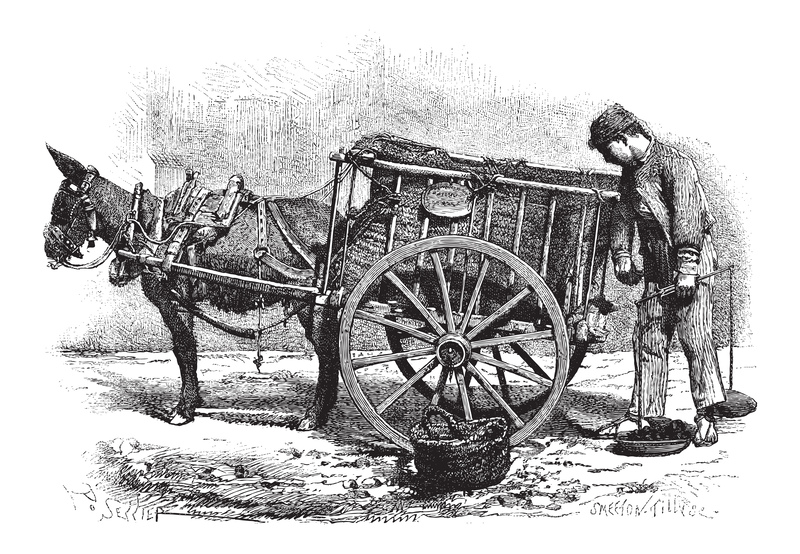How to Recycle Your Old Chargers Sustainably
Are you wondering what to do with that tangle of old chargers cluttering up your drawers? With new gadgets coming out every year, it's easy to accumulate a pile of obsolete cables and adapters. Fortunately, choosing to recycle these old electronics can have a significant positive impact on our environment. In this comprehensive guide, you'll learn how to recycle your old chargers sustainably and why it's so vitally important.
Why Is Sustainable Charger Recycling Important?
Electronic waste, also known as e-waste, poses a serious threat to our environment and health if not disposed of correctly. Chargers contain metals, plastics, and chemicals that can contaminate soil and water. By focusing on sustainable charger disposal, you help prevent pollution, conserve resources, and promote a cleaner, greener planet.
- Chargers contain valuable materials like copper and rare earth metals that can be recovered and reused in new products.
- Improper disposal of e-waste leads to landfill overflows and toxic leaching.
- Sustainable practices support a circular economy and reduce the demand for raw materials.

Understanding What Happens to Old Chargers
Your old phone and laptop chargers are classified as electronic waste. When thrown in the regular trash, many chargers end up in landfills where they can take decades to break down, releasing harmful substances in the process.
The Components of a Typical Charger
- Plastic casing
- Metal wiring (usually copper or aluminum)
- Circuit boards with solder and various metals
When these materials are recycled correctly, they can be turned into useful resources instead of pollutants.
Best Ways to Recycle Your Old Chargers Sustainably
Now let's explore the most effective sustainable ways to dispose of or recycle your old chargers. Each method offers unique benefits and contributes to environmental sustainability.
1. Check Local Electronics Recycling Programs
Most cities and towns offer designated e-waste recycling centers or collection events. Here's how to take advantage:
- Search your municipality's website or call your local waste authority.
- Find out about designated drop-off locations for old electronics, including chargers and cables.
- Confirm with the facility that they safely recycle electronic accessories and follow environmental guidelines.
This is often the easiest way to recycle your electronics responsibly and sustainably.
2. Use Retailer Take-back or Trade-in Programs
Many large electronics retailers now offer take-back, trade-in, or recycling services for old chargers and cables. Examples include:
- Best Buy: Accepts most cables, chargers, and small electronics at their recycling kiosks.
- Staples: Participates in e-waste recycling, including for small cords and power supplies.
- Apple: Allows customers to return Apple-branded chargers at their stores for recycling.
- Target: Some stores have electronics recycling bins at the front.
These programs ensure your old accessories are diverted from the landfill and processed responsibly.
3. Donate Working Chargers and Cables
If your cables and chargers are still functional, consider giving them a second life through donation. Many schools, non-profits, or community organizations can make use of working electronics. Donation is a fantastic way to practice sustainable charger disposal while helping others.
- Check with local charities, schools, or community centers.
- Organizations such as Goodwill and Salvation Army may accept electronics in good condition.
- Look for 'reuse' initiatives online or in your neighborhood.
4. Mail-in Recycling Options
Various companies now offer mail-in recycling programs for obsolete electronics and chargers:
- Cords for Good: Focused on cable and charger recycling with proceeds going to charity.
- TerraCycle: Handles unusual electronic items like charger cords and power adapters.
- EcoATM/Gazelle: Mail-in and kiosk options for phones and accessories.
Mail-in programs are especially convenient if local drop-off options are limited.
5. Recycle at Manufacturer Collection Points
Brands like Dell, HP, and Samsung offer recycling programs for their products, including power adapters and USB chargers. Simply visit their website and search for "recycle" to find instructions on how to return your accessories directly to the manufacturer.
6. Repurpose or Upcycle Old Chargers
For those with a creative touch, upcycling old chargers and electronic cables offers a sustainable alternative:
- Transform USB cables into headphone holders or other DIY household items.
- Use parts in craft projects or school science experiments.
- Upcycle the plastic casing as cable organizers or plant markers.
While not all old chargers can be repurposed, many can find an inventive second use before reaching the recycling bin.
What Not to Do: Common Mistakes in Disposing Old Chargers
While it can be tempting to just throw your old chargers straight into the garbage, here's why you shouldn't:
- Landfill disposal allows toxic materials to leach into the environment.
- Improper recycling can result in fires from lithium batteries or short circuits.
- Valuable metals and plastics are lost forever instead of being repurposed.
- Some components can pose health hazards to waste handlers.
Remember: responsible charger recycling is just as important as recycling your old phones or laptops!
How to Prepare Old Chargers for Recycling
To maximize sustainability and safety, there are a few steps you should take before dropping off your electronics:
- Remove any batteries (if attached) and recycle them separately.
- Bundle cords neatly or tie together with a reusable twist tie.
- If donating, test the charger to ensure it still works.
- Erase personal or identifying marks if privacy is a concern.
These steps make the recycling process more efficient and eco-friendly.
How Sustainable Charger Recycling Helps the Environment
Recycling old chargers and cables through proper channels offers numerous environmental benefits:
- Reduces landfill waste and dangerous leachates.
- Conserves finite resources by salvaging precious metals.
- Decreases environmental footprint by reducing the demand for raw mining and processing.
- Lowers greenhouse gas emissions by minimizing the need to manufacture new materials from scratch.
With billions of charging accessories produced annually, every charger recycled counts towards a healthier planet!
Sustainable Charger Recycling Around the World
The rules and best practices for sustainable charger recycling can vary by region:
- In Europe, the WEEE Directive requires manufacturers and retailers to provide e-waste collection points.
- In the USA, recycling laws differ by state, but most major electronics stores accept e-waste.
- In some developing countries, informal e-waste recycling can be hazardous. Look for certified programs whenever possible.
Look for Certified E-Waste Recyclers
Certified recyclers, such as those accredited by e-Stewards or R2 standards, guarantee your chargers are processed sustainably and ethically.
Helpful Tips for Reducing Charger Waste
Of course, the most sustainable approach to charger disposal is to reduce the number you generate in the first place. Here are a few eco-friendly tips:
- Buy universal chargers that work with multiple devices, reducing redundancy.
- Choose electronics with replaceable cables rather than built-in chargers.
- Take care of your chargers and avoid over-stretching or bending their cords to extend their lifespan.
- Support brands that offer take-back and recycling initiatives--it's a sign they care about sustainability.
- Pass along working chargers to friends or family who may need a spare.

Frequently Asked Questions About Recycling Chargers Sustainably
Is it OK to put old chargers in the regular recycling bin?
No. Most municipal recycling programs do not accept electronics in curbside bins. Chargers should be taken to specialized e-waste recyclers or designated drop-off points.
Can I recycle wireless chargers and power banks the same way?
Yes, but be careful--wireless chargers and power banks may contain lithium batteries which require separate handling. Remove any batteries before recycling, or follow label instructions for proper disposal.
Are there any privacy risks in recycling old chargers?
Chargers themselves do not generally store data, but it's best to wipe any personal marks before donating or recycling in case the adapter is returned to use.
What about travel adapters and specialty power cords?
These can typically be recycled through the same e-waste programs as standard chargers. Always check with the facility first for compatibility.
Can I sell my old chargers?
If your chargers are in good condition and compatible with popular devices, you may be able to sell them on used goods platforms or through online marketplaces. This extends the life of your chargers and is a highly sustainable option.
Conclusion: Your Role in Sustainable Charger Recycling
With the rising tide of e-waste, recycling old chargers sustainably is more crucial than ever. By following the practical steps above, you can dispose of your unused charging cables in a way that's safe, responsible, and eco-friendly. Whether you use a local collection program, retailer take-back, mail-in service, or donation, your actions help conserve resources and reduce environmental harm.
Let's all take a proactive step for our planet. Don't let your old chargers gather dust or pollute a landfill. Choose one of the many sustainable solutions outlined above--and encourage your friends and family to do the same. Every cord counts!
- Check your local options today and be a part of the solution for a cleaner, greener future.
- Recycling your old chargers sustainably has never been easier--or more important.